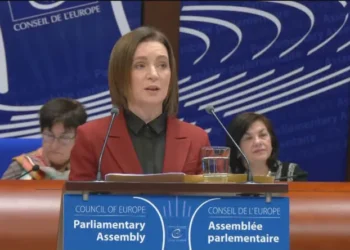In a significant departure from longstanding policy, NATO’s 2024 annual report omits any mention of Georgia and Ukraine’s prospective membership—a commitment upheld since the 2008 Bucharest Summit. This change reflects shifting geopolitical dynamics and internal challenges within both nations.
“In the Euro-Atlantic area, Allies are actively engaged with 16 partner countries, bilaterally and through the EuroAtlantic Partnership Council and the Partnership for Peace programme.11 Among these partners, NATO has developed specific structures for its relationships with Ukraine and Georgia”, reads the report.
The report notes that NATO’s engagement in the South Caucasus continues to be supported by the NATO Liaison Office in Tbilisi.
“NATO and Georgia also continued their practical cooperation to strengthen Georgia’s security and defense capabilities and enhance interoperability with the Alliance”, reads the report.
In addition, the NATO Secretary General’s 2024 report no longer mentions that Georgia and Ukraine will become NATO members.
For Georgia, the omission coincides with growing concerns over democratic backsliding. NATO Secretary-General Mark Rutte has urged Tbilisi to recommit to its Euro-Atlantic integration path, highlighting worries about recent legislative actions and political developments that may hinder Georgia’s alignment with Western institutions.
Ukraine’s exclusion from the report aligns with ongoing diplomatic efforts to resolve the conflict with Russia. The US administration’s recent proposal to deny Ukraine NATO membership as part of a broader peace strategy has been welcomed by Moscow, potentially influencing NATO’s current stance.
These developments mark a notable shift in NATO’s approach to Eastern European partnerships, signaling a more cautious strategy amid complex regional tensions.














